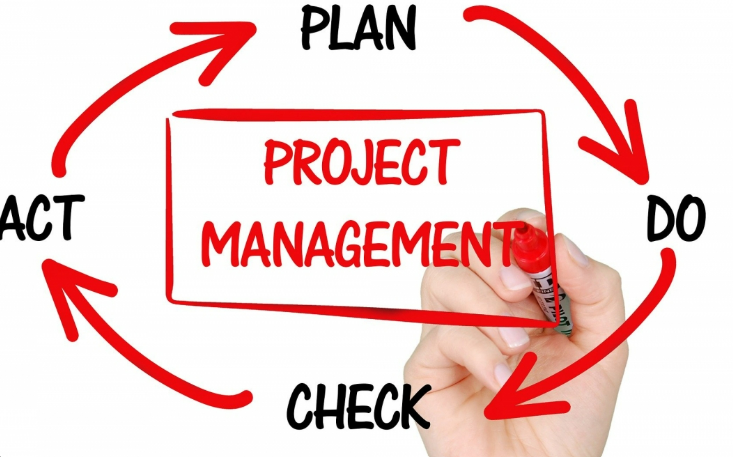A Project becomes successful only because of good planning, execution, efficient team, and completion within the time. All these tasks will run successfully under Project Management. Besides, A Project team member must possess strong technical, people management, communication, and business planning abilities. Project Management Methodologies are the collection of tools and best practices that assist you in structuring projects to maximize effectiveness and output.

The Project Management Method indeed offers guidelines for managing the project successfully. The main aim of the methodology is to promote collaboration, maintain the budget, increase operational efficiency, and enhance the quality of deliverables additionally.
What are the Project Management Methodologies?
Project Management Methodologies are crucial for the team’s productive nature and easy project functioning. Moreover, It helps Organizations achieve their goals and objectives efficiently and effectively. It is important to ensure strategic alignment with the client’s strategy. The Project Methodology indeed provides more flexibility and promotes better creativity.
Here are the Top 10 Project Management Methodologies:
1. Scrum
Scrum is a simple process to manage complex projects. Moreover, It helps to work on a common goal. Using scrum, the team can divide the project into small, manageable tasks, prioritize them, and develop them over sprints. Scrum not only promotes daily stand-up meetings where team members discuss achievements, challenges, and Upcoming tasks.
Key Highlights:
- This enhances not only transparency but also facilitates prompt goal alignment and Problem-solving.
- Sprints, a small portion of work, are part of Scrum that lasts a further one or two weeks.
- Moreover, Scrum Masters are committed to this project management methodology in improving their workflow.
- Any team that involves agile methodology can consider using Scrum Methodology also.
2. Critical Path Method
Critical Path Method (CPM) provides guidelines not only for identifying bt also for scheduling key tasks with a long-term project. Besides, It is one of the important Project Management methods that help in Project planning and management. It additionally helps to identify the tasks necessary for project completion.
Key Highlights:
- The Critical Path Method indeed creates an algorithm for scheduling a set of project activities.
- Besides, It is required to measure the time for the longest stretch of activities in a project.
- On the other hand, It helps to break complex tasks into individual tasks for better understanding.
- But, It is suitable for small to mid-size teams with simple projects.
3. Kanban
Kanban Methodology gives full transparency in the Project management process. It consists of a Kanban keyboard, Kanban cards, principles, and practices additionally. On the other hand, It is useful for managing software development programs. The flexibility of Kanban boards helps to customize the projects in almost all industries. Besides, It is used to track the workflows in various fields
Key Highlights:
- Kanban boards indeed display work items such that every small piece of work is visible to everyone.
- Besides, It is a popular framework used to implement DevOps and Agile Software.
- Moreover, It helps the team to focus on the task and avoid a bottleneck.
- Also, It is suitable for teams of any size, mainly those with remote working people.
4. Agile
Agile Methodology is needed to ensure the development team not only completes the project on time but also within budget. Besides, It reduces the risk associated with complex projects. Agile divides the project into pieces and highlights ongoing improvement and cooperation additionally. On the other hand, this method improves communication between the development team and the product owner. Agile Methodology frequently promotes inspection and encourages teamwork, Self-organization, and accountability.
Key Highlights:
- The Agile Methodology releases benefits throughout the process rather than at the end.
- It helps the team to measure their performance, make the right decisions, and avoid backlogs.
- It reviews the backlogs at each sprint to determine the upcoming challenges and overcome excessive costs.
- It provides more flexibility and creativity than any other methodology.
5. Waterfall
The name Waterfall itself defines the type of analysis involved during Project Management. It is a process designed to observe the progress firmly moving downwards. The sequence of the phases in Waterfall Methodology involves Analysis, Design, Implementation, Testing, and Maintenance. Moreover, It helps to understand the requirements of the new system. Also, It is a step-by-step process that helps to understand the requirements clearly. A Project Management Course helps in learning this methodology.
Key Highlights:
- The Waterfall Methodology helps the users understand the type of task and allocate time.
- Moreover, this method gives proper planning, effective execution, and productivity among the teams.
- On the other hand, Projects are delivered with no errors as it is executed with enough attention.
- However, It suits large teams working on big projects with multiple clients and stakeholders.
6. Extreme Programming
Extreme Programming indeed is the most specific software development process. Besides, It is high-quality software that improves the quality of the development team. Also, It is agile with dynamically changing requirements. Communication, simplicity, feedback, courage, and respect are the main values of this methodology.
Key Highlights:
- The Extreme Programming Methodology indeed stresses one-to-one communication that helps to solve the issues easily.
- This methodology aims not only to reduce unnecessary work but also to improve productivity with the known requirements.
- Also, It targets speed and simplicity with short development cycles and less documentation.
- However, It is applied to small and midsize teams with tight deadlines.
7. Critical Chain
Critical chain methods are used to schedule tasks when there are limited resources. A product Manager combines several tasks into one big task and allots to the team with a single resource. The critical path method considers all the critical tasks primarily. It is applied to small and large teams with more effectiveness in resolving issues.
Key Highlights:
- The process of critical management involves:
- Identifying tasks
- Planning a program
- Define constraints
- Determine critical path
- Determine buffers
- Apply Resources
- The team has to finish the work on their own with the provided resources.
- The Critical chain method works on the optimization of projects having long estimates and wastage of buffer.
8. Crystal
The crystal method is based on people and their interactions. The three important aspects of this method are the size of the team, Criticality, and Project Priority. They optimize their work by streamlining the workflow. Every project has its unique features. It assigns timespans to each part of the work. This method suits small teams with less work and a customizable framework.
Key Highlights:
- It encourages Osmotic Communication where people from co-location are also involved to share their ideas to improve the workflow.
- Moreover, the crystal method is a challenging process with no strict rules.
- Crystal methodology focuses on very little documentation and frequent deliverables.
- Also, the development of products involves new techniques and tools.
9. Event-Chain
Event chain 5S Methodology manages the project and identifies the chain of events that affect the schedules. Event chain management is suitable for teams affected by external factors and unable to meet deadlines. It helps to identify the risks and plan proper schedules and budgets for the project.
Key Highlights:
- Monte Carlo Analysis is used to identify the consequences of events.
- It is useful to identify the behavior of complex systems.
- Event chain Management is helpful for managers to observe the relationship between the project and the external effects.
- Project managers use the Event Chain Methodology to be safe from any type of risk factors.
10. Lean-project
Lean-Project Methodology helps the Project managers to do the deliverables on time and maintain budget. This method helps to optimize the resources and efforts and allows the teams to work effectively. Teams can eliminate waste by identifying, evaluating, and modifying the process.
Key Highlights:
- Managers using the Lean Project methodology observe the team closely and efficiently distribute the work.
- Lean Manager communicates directly with the customer to know about their requirements.
- Value stream management helps to identify the problems and choose the right team through mapping analysis.
- Lean methodology increases the efficiency of the team and reduces issues. It also reduces the budget by making clear planning.
Henry Harvin Education – Become a Certified Project Management Professional
Rating: 4.6/5
Henry Harvin is the largest global upskilling company. They offer 1200+ live certification courses and diploma, degree, and doctorate programs. PMP certification is a Gold standard for Project Management Professionals. The course covers the latest best practices that help to prepare for the latest PMP examination.
Course Details
Henry Harvin Education provides PMP courses with
- 36 hours of Instructor-led sessions
- 54 Guided Hands-on Exercises.
- 1-year Gold Membership
- Guaranteed Internship with top MNCs and Henry Harvin
- Access to Job Portal and Personalized job consulting
- Certificate from Henry Harvin education with International recognition and NSDC Certification
Conclusion
A Project management method is used to reduce risks, improve the productivity of the team, maintain budget, communication, respect, meeting customer requirements. Whether it is an agile, scrum waterfall, or any other new methodology, the final goal is to meet the requirements of product management. Many new methodologies are emerging in the product management fields. Professionals can get a quick knowledge of the top 10 project management methodologies based on the above information.
Recommended Reads:
- Top 15 Agile Project Management Certification in the USA in 2024 [Updated]
- Top 10 Agile Project Management Certification Online in 2024 [Updated]
- Top Free Strategic Management Process courses in 2024 [Updated]
- What is Scrum: Methodologies In Project Management 2024 [Updated]
- Why Startups Need Project Management in 2024? [Updated]
FAQs
Ans. Agile is the most commonly used methodology in Project Management.
Ans. Critical Path Method(CPM)
Ans. Waterfall Methodology
Ans. Project Management Methodology helps to reduce risk and increase productivity.
Ans. Henry Harvin Education is the best institute that offers PMP certification courses.



